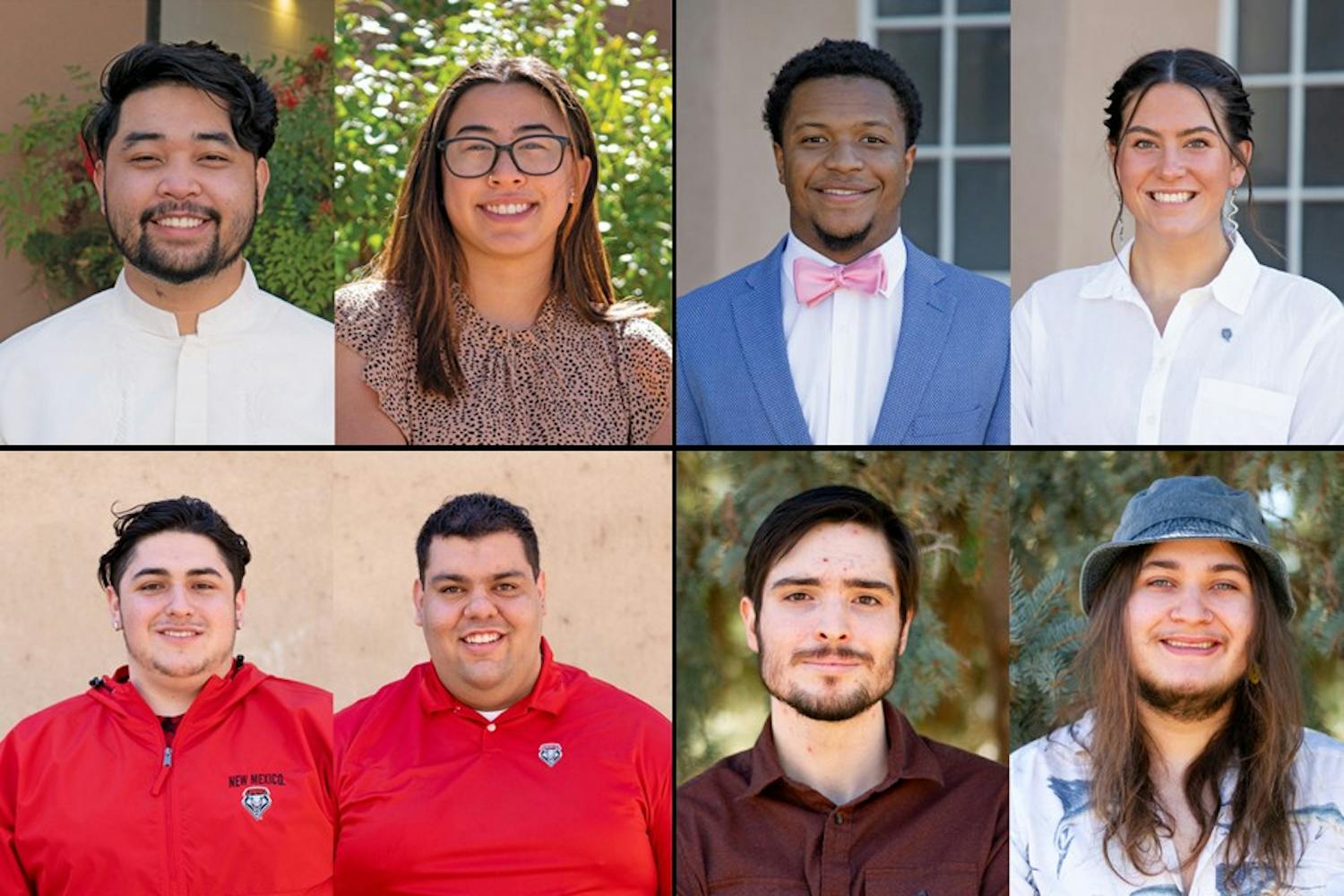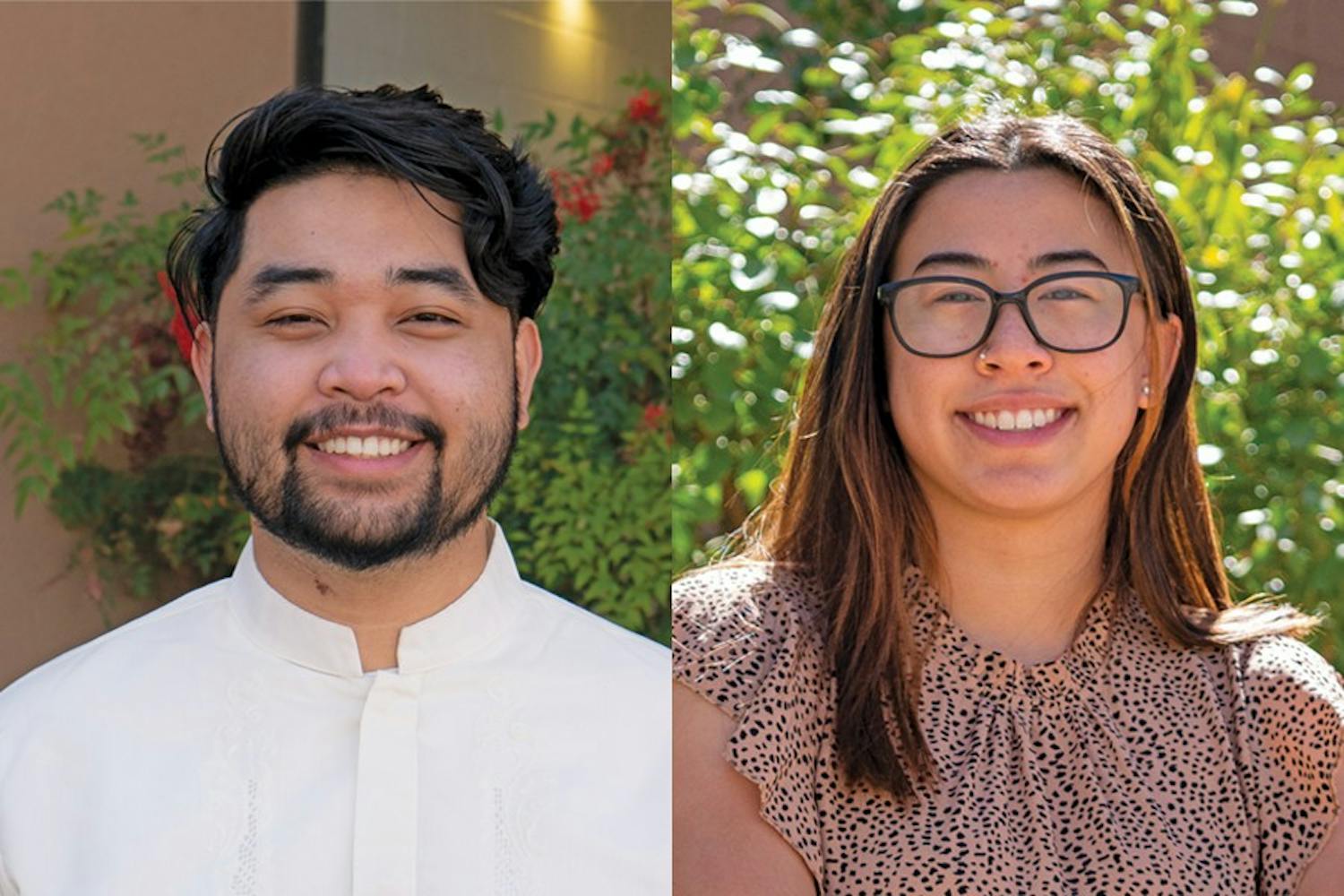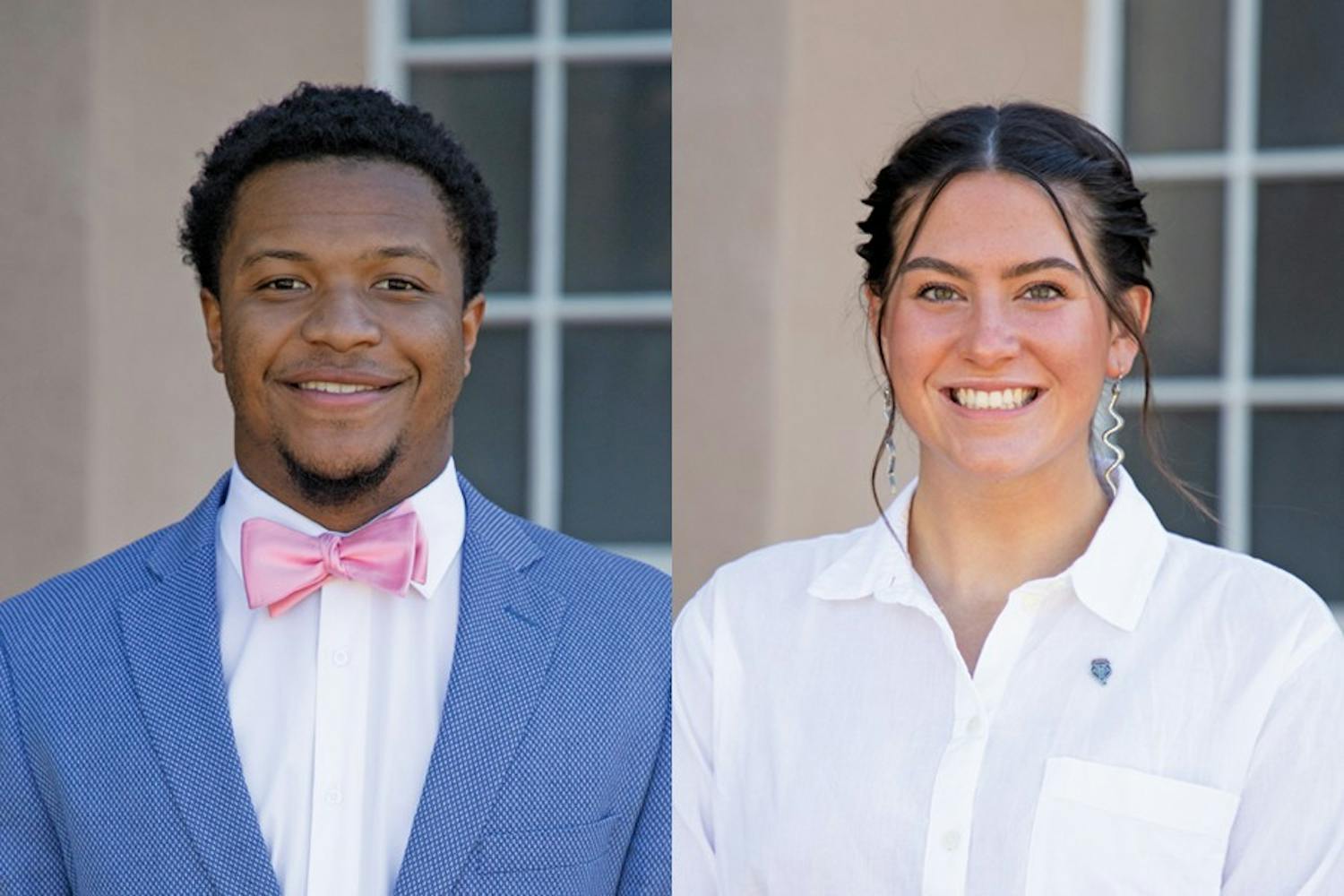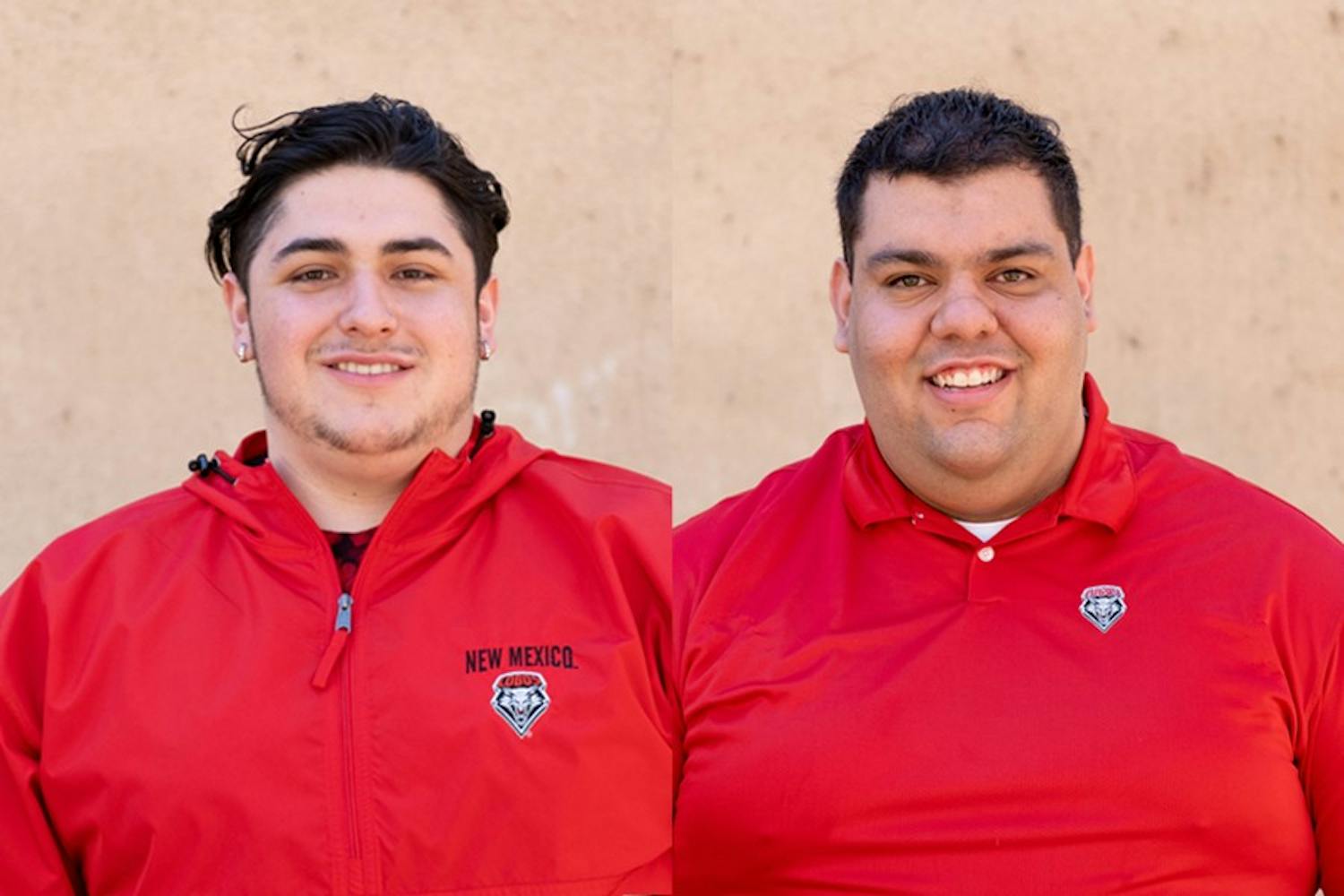This year’s ASUNM election is anything but business as usual. Presidential and vice-presidential candidates have presented diverse and comprehensive platforms that moved beyond empty platitudes. With the events of the past year fresh in their minds, the candidates outlined their strategies for tackling the biggest issues still plaguing the UNM community.
Undergraduates can vote online beginning on Monday March 8 by going to their myUNM student portal and selecting two of eight candidates — four running for president and four running for vice president. Each position is elected separately as opposed to one united slate.
The ASUNM president's official duties include serving as the representative of the undergraduate student body and managing the executive branch, including the eight ASUNM agencies and executive boards, according to the ASUNM constitution. The vice president presides over the ASUNM Senate, and thus has influence over all ASUNM appropriations and resolutions.
The Daily Lobo met with the ASUNM candidates for a media ‘meet and greet’ on March 4 to ask about their perspective on University governance, UNM’s past budgetary decisions and how they plan to advocate for students should they be elected.
Greg Romero/ Ryan Regalado
Former ASUNM Senate Finance Chair and Student Fee Review Board member Greg Romero, a first-generation Hispanic student, will be the third presidential candidate on the ballot. Romero is running with Biochemistry senior Ryan Regalado.
While some of the candidates advocated for radical changes like decreasing the athletics budget or making the student regent an elected position, Romero and Regaldo took a more moderate approach.
Romero said one of their campaign’s primary goals is to improve communication between students and the administration and to hold the UNM administration more accountable.
“The unfortunate truth is that, as much power as the ASUNM president has had within the student body it hasn't seemed to matter much in terms of the budget leadership team and our student fee requests,” Romero said.
Regalado echoed this sentiment and said, “We can have a resolution for UNM admin accountability but we need to make sure the administration is coming to the table, willing to talk to students and being held accountable, and that way they cannot just blow all students off and not respond.”
Though the Romero/Regalado slate seemed less than optimistic about being able to make substantial difference in budgetary decisions, they did propose some specific projects that they felt could make a difference in students’ campus experiences.
For example, the slate advocated for improving campus safety by making the LoboGuardian App a more useful tool for all students.
Get content from The Daily Lobo delivered to your inbox
"We currently have a LoboGuardian app that was put out by UNM that has not worked out for any students,” Romero said.
The app allows you to give your location to your designated guardians so they can track your whereabouts during a specified period of time and makes contacting the UNM Police Department easier by allowing for anonymous tips and automatically delivering your Smart911 profile to a police response team at the touch of a button.
Romero explained that the app was intended to be used for “something as small as a light being out in your parking lot or (if) you witness an assault at the Duck Pond.”
Romero also said he and Regalado would work to find “alternative housing options” for the students who are part of the Native American Living and Learning Community (LLC), which is scheduled to dissolve this summer.
Romero suggested reaching out to UNM housing and American Campus Communities (ACC), the private housing company that runs Lobo Village and Casas del Rio, to help develop a housing alternative solution. ACC has been sued by college students across the nation for predatory practices.
Romero said he would also like to work with American Indian Student Services (AISS) and other places on campus where living and learning communities have worked in the past.
“Whether that be directly on campus (or) whether that be with American Campus Communities, something like that is maybe more efficient or works better for everybody involved,” Romero said.
Jacob Olaguir/Alina Le
Former ASUNM senator Jacob Olaguir, a sophomore business student and first on the ballot, helped pioneer the establishment of an Asian Pacific American Cultural Center on campus. Olaguir is running with Alina Le, a sophomore studying East Asian Studies with a double minor in biology and Spanish.
While Olaguir and Le came across as less polished choices, they also read as less entrenched in ASUNM politics. Both seemed optimistic about their ability to enact change, possibly empowered by their history with community organizing.
When asked how they would address the university's bloated athletics budget, Olaguir said simply, "When it comes to the university's financial matters, It's best that we focus our attention back on the university's ultimate goal and that's providing higher education.”
Rather than focus on public safety and increased surveillance on campus, their slate focused on efforts such as asset mapping to connect students in need with local resources.
“On Instagram, I talked about developing a (Covid relief) asset map. If (the Navajo Nation LLC) contract doesn't come through, then this asset map is going to be pinpointing areas of relief including affordable housing locations,” Olaguir said. “I will appoint a director of diversity, equity and inclusion and I would have them provide training on how to fill out applications for affordable housing within different locations that are on the asset map.”
While every presidential candidate expressed support for the graduate student employee unionization effort, Olaguir made the case that the inequitable treatment of graduate student employees might make prospective students reconsider applying.
“I am an undergraduate working in an undergraduate research fellowship that's preparing me for grad school, and if this is how graduate student workers are going to be treated then I might look into other schools,” Olaguir said.
Olaguir was also the only candidate to say that he was already taking steps to make his support for the unionization effort public.
"I do support the grad student union. I've signed their petition. I reached out to them in an email … I really wanted them associated with my campaign, so this weeked we are going to be working on a statement of solidarity,” Olaguir said. “I wanted to make a statement and use my platform and my campaign, and all the publicity that this time gets, as a way of telling the university, hey (this matters).”
Ricardo Hill/ Lauren Candland
ASUNM Senator Ricardo Hill, a political science major and criminology minor, is the second presidential candidate on the ballot. Hill is running with Lauren Candland, a junior double majoring in criminology and organizational communications who serves as the current director of communication for the Mia Amin administration.
Like Romero and Regalado, Hill and Candland bring extensive ASUNM experience, however they are less skeptical about their ability to work with the administration and influence budgetary decisions on campus.
"The authority, when it comes to the budget, is not something I feel like is out of the reach of ASUNM president, if done correctly,” Hill said. “Not being transparent about the tuition increase was something that really divided (the) administration from students. I believe an ASUNM president has the ability to make those conversations happen."
Hill emphasized the importance of actionable plans in combination with legislative resolutions to improve communication between UNM administrators and the student body.
Hill also said UNMPD should receive multicultural sensitivity training. A UNMPD officer was placed on paid administrative leave last fall after racist videos posted to their personal Tik Tok account were brought to light.
“I also believe that the UNMPD should have personal training to understand our different multicultural groups here on campus,” Hill said.
When asked what he would do as ASUNM president for unhoused and food insecure students, Hill said the Lobo food pantry on campus should be fully funded and that he would oppose building a wall around campus, referring to a previous campus security proposal that suggested erecting a 10-foot-tall iron fence around the University perimeter, as reported by the Albuquerque Journal.
“I do not — and Lauren does not — support a wall around campus. I don’t think that we need another measure in which to divide us,” Hill said.
When asked how he would respond to the Native American LLC contract being discontinued, Hill said he personally understood the importance of LLCs and would work hard to ensure that those students were able to maintain that living arrangement.
“I am a member of the Black Living Learning Community here on campus, so I definitely understand how an LLC is something that is pivotal to a community and (ensures) you have a safe space to be who you are freely,” Hill said.
Hill said if an LLC’s contract were to be jeopardized while he was president, he would do more than express his support for those who lost their living arrangements.
“I would be writing legislation, in conjunction with that community and the UNM admin, to make sure that these spaces are there and they are equitable and feasible for (these) communities … I wouldn't just speak (on this issue), I would take action to make it come true,” Hill said.
Noah Dowling-Lujan/ Ian Baker
Noah Dowling-Lujan, the fourth presidential candidate on the ballot, has not previously held office in ASUNM and ran an unsuccessful bid for ASUNM senate in spring 2020. Dowling-Lujan, a third year political science major and president of the UNM College Democrats, is running with Ian Baker, a film & digital arts major.
Where Hill and Candland were careful to state that they would not oppose the administration’s budgetary decisions unless the entire student body demanded it, Dowling-Lujan and Baker had an almost polar opposite take.
“The (UNM) budget is not allocated correctly, we know this because students are suffering on campus. The budget does not work for the students,” Baker said.
Dowling-Lujan came out strongly in favor of reforming the UNM Board of Regents selection process and said he opposed gubernatorial appointments of regents who had donated generously to the governor’s campaign.
“We need to look at things like the thousands of dollars that Douglas Brown, who’s the President of the Board of Regents, has paid to Michelle Lujan Grisham before his appointment. I think that's pretty suspicious and it’s a part of a long line of New Mexico’s history of corruption.” Dowling-Lujan said.
Dowling-Lujan advocated for holding student body elections for the student regent, while the other three candidates waffled and said there were pros and cons to changing the current process where the governor appoints.
“The idea that we will have a just and fair system through unaccountable appointments for something as important as a (University governing) board is the wrong way to go about things,” Dowling-Lujan said. “People on campus have no idea who the student regent is, they don't interact with them at all... (Electing the regents) is a campus-wide reform that, once implemented, would benefit the students more than it would hurt them.”
Running as the anti-establishment option, this duo prioritized funding the independent student paper and defunding ineffective surveillance public safety efforts.
“We need people to hold us accountable. I think that starts foremost with our news. We need people (referring to the Daily Lobo) who have the resources — and we need to provide them the resources — to call us out when it needs to be called out,” Baker said.
According to Dowling-Lujan, current efforts to add more lighting on campus have been ineffective at improving public safety, and similar projects have been spearheaded by Greek organizations for the purpose of improving public perception of the University .
“Public safety is an important issue but I think mainly it affects disadvantaged students on campus,” Dowling-Lujan said. “We need to stop wasting money on things like spurious safety lights on campus. I know ASUNM recently requested $60,000 in the capital outlay budget to build safety lights around campus, I think that this is a waste of money and doesn’t contribute to anyone’s safety but for a certain select group.“
Regarding efforts to support housing insecure students, Dowling-Lujan said, “We need to have more housing opportunities for people in New Mexico who need somewhere to stay.”
He agreed with the other candidates that as ASUNM president he would stand in support of the students who are members of the Rainforest LLC.
“(That) was one of the few places where Native American students could actually gather and have affordable housing,” Dowling-Lujan said. “I think that — just like the student family housing center — is something that UNM needs to be reinvesting into rather than ignoring and dropping permanently.”
The election will conclude on Wednesday, March 10 at 5 p.m. According to Joshua LaFayette, the ASUNM elections chair, photos of the winners will be posted to the ASUNM Elections Instagram page as soon as the ballots have been tallied (likely between 6 and 7 p.m.).
Hevyn Heckes is a freelance reporter at the Daily Lobo. She can be contacted at news@dailylobo.com or on Twitter @H_Squared90
Lissa Knudsen is the news editor at the Daily Lobo. She can be contacted at news@dailylobo.com or on Twitter @lissaknudsen










